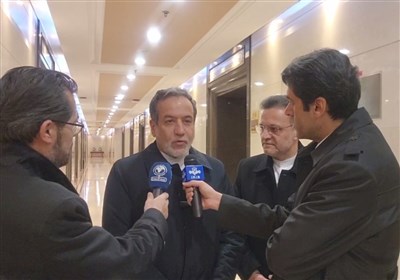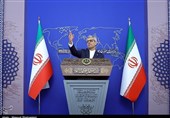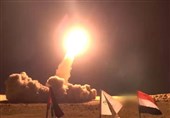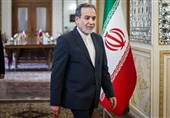Trump’s Syria Plan Not to Change US Imperial Agenda: American Analyst
TEHRAN (Tasnim) – A senior political analyst from the US state of Illinois pointed to the recent decision by President Donald Trump to withdraw US troops from Syria, saying that whether the US stay or leave the Arab country, “Washington’s imperial agenda” will remain unchanged.
“Whether US forces stay or leave Syria, Washington’s imperial agenda remains unchanged - seeking regime change in Syria and against all other sovereign independent governments,” Chicago-based Stephen Lendman told Tasnim in an interview.
“It’s unknown for sure if US forces in Syria will stay or leave,” he said, adding, “Washington has 18 military bases in the country.”
Stephen Lendman is a writer, syndicated columnist, activist, News TV personality, and radio show host. He currently writes for MoneyNewsNow.com and VeteransToday.com and hosts, since 2007, a progressive radio show at The Progressive Radio News Hour on The Progressive Radio Network.
The following is the full text of the interview:
Tasnim: As you know, US President Donald Trump has recently decided to withdraw all US troops from Syria. Given that Trump is a businessman and thinks only about profit, what are the reasons behind this decision? What do you think about the possibility of the total withdrawal? Would he keep US strongholds in Syria?
Lendman: Whether US forces stay or leave Syria, Washington’s imperial agenda remains unchanged - seeking regime change in Syria and against all other sovereign independent governments.
It’s unknown for sure if US forces in Syria will stay or leave. Washington has 18 military bases in the country. It’s building two more and one or two others in Iraq near Syria’s border.
The Pentagon isn’t about to abandon these bases. US forces in Syria will either stay, be fully or partly redeployed to Iraq and/or elsewhere in the region.
Pentagon forces, if leave, will likely be replaced by private military contractors like Blackwater USA - unaccountable to US or local laws, norms, and standards. My best guess is this is what’s most likely in the new year.
Tasnim: Trump’s withdrawal plan has been met with widespread opposition inside and outside the US. France's President Emmanuel Macron has said he deeply regrets the controversial decision. “An ally must be dependable,” said Macron, who reportedly called Trump to warn him against the plan. US Defense Secretary Jim Mattis and the US envoy to the global coalition fighting the Daesh terrorist group, Brett McGurk, resigned in protest over Trump’s decision. In your opinion, why is Trump insisting on his decision?
Lendman: Trump is a businessman, television personality, a geopolitical know-nothing. He understands profit-making, not affairs of state.
After escalating wars in Syria, Iraq, Afghanistan, and Yemen for nearly two years in office, his decision to pull back is inconsistent with what he’s gone along with so far.
I can’t read his mind. I’ve explained that he delegated geopolitical issues to regime hardliners, Pompeo, and Bolton most of all. He’s notorious for saying one thing and doing another.
Even if he withdraws forces from Syria and Afghanistan he’ll do no more than move pieces around on America’s chessboard - leaving its imperial agenda unchanged. If he pushes too far, which is unlikely, he could be impeached or assassinated like Jack Kennedy.
Tasnim: Some analysts say that the US withdrawal would be a victory for Iran. What is your assessment of the Islamic Republic’s role in developments which led Trump to take such a decision?
Lendman: Withdrawal or staying changes nothing. Either way, it’s no victory for Iran - wanting regional peace and stability not forthcoming because the US wants endless war.






